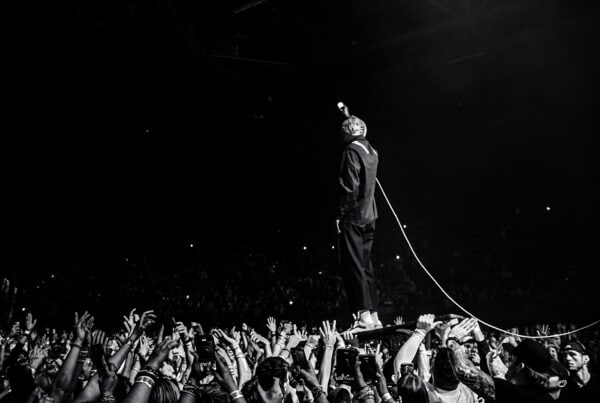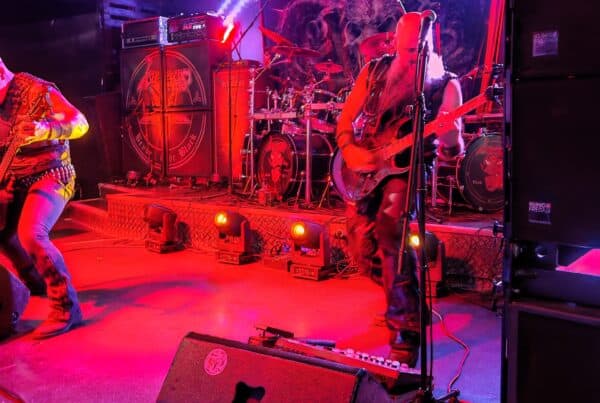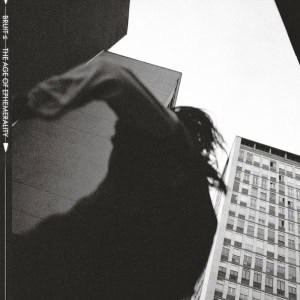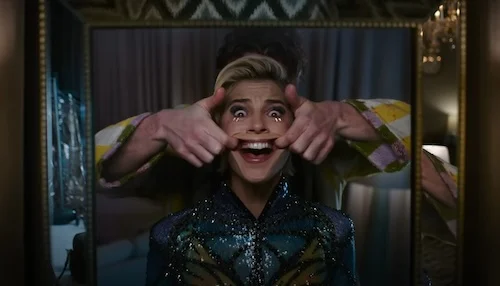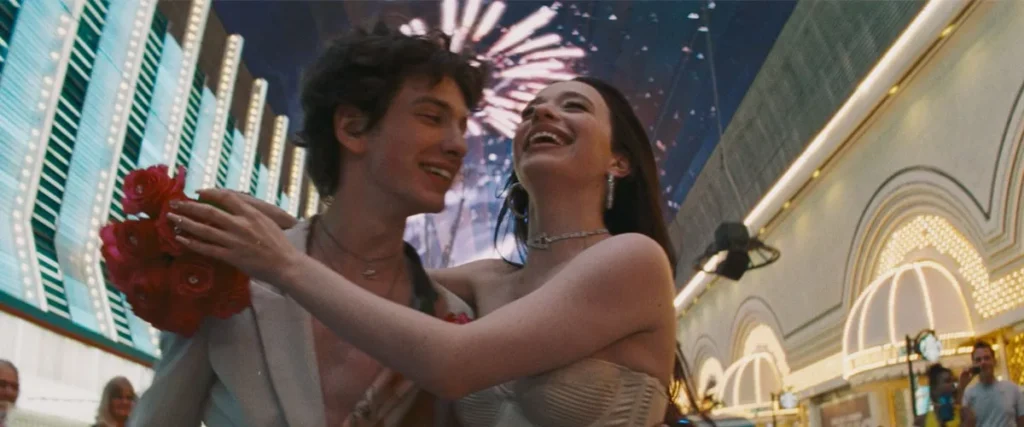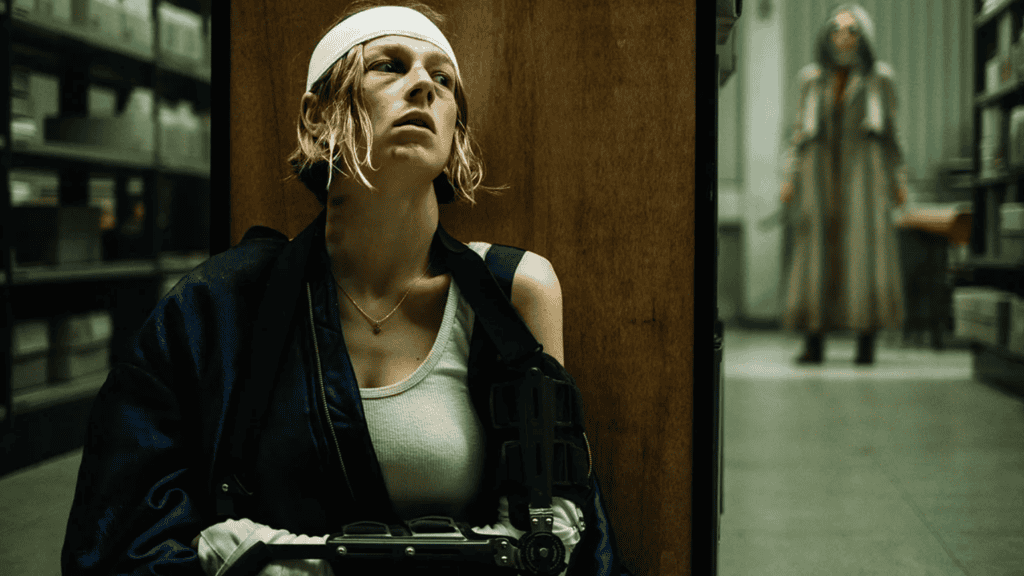Free idea for any Media & Gender Studies students reading this who are mulling over what their dissertation should be: the history of modern pop feminism can be traced simply by following the evolution of the Charlie’s Angels franchise. I’m not talking about the actual substantive qualities of the various waves of feminism themselves, but rather how popular culture like TV and films (almost uniformly overseen by men) interpret, commercialise and repackage said waves of feminism into mass consumption media aimed at selling the concept in the most non-threatening mainstream-friendly manners possible. And the Charlie’s Angels franchise has, for four and a half decades, consistently reared its head at the climactic moments of each particular wave.
Debuting in the late-70s as the momentum behind second-wave feminism was starting to taper off under a patronising belief that the movement had achieved the equality it set out to claim (plus increasing splintering over issues of sex and sexuality), the Charlie’s Angels TV series was intended to be an escapist show for women about three highly-capable female police officers who, tired of being undervalued by their stodgy patriarchal Los Angeles precincts, decide to quit and become exclusive private investigators bankrolled by an unseen millionaire named Charlie. It played heavily into the women’s rights movements of the time, that feeling of being underappreciated and being just as capable if not more so than the boys, as well as the tenants of aspirational television – glamorous supermodel-pretty leads, fancy cars, the sweltering Los Angeles heat, high fashion – to fit the mould of escapist fiction whilst wrapping it up in the mass-consumption procedural television model of all the most popular 70s shows.
Except, of course, that nobody remembers the show like that. Hell, even at the time of the show’s airing when it was one of the biggest programmes in America, it was slated in the press constantly for being a “jiggle show,” a thinly-disguised excuse to push the then-limits of sexualisation and titillation on network television. And, yeah, such critics weren’t exactly wrong. The show was a total cheese-fest unashamedly shot through the male gaze – you may not be particularly surprised to learn that, across its five-season run, the show did not have many female writers and not one single female director for any of its 110 episodes – that only further played up the sexualisation and fetish-pandering as it got deeper into its run. Readers of a certain age might also know this as either “The Charmed Effect” or perhaps more relevantly “The Totally Spies! Effect.”
Once third-wave feminism crested in the late-90s after it had already been watered down into meaningless “girl power” sloganeering – a devolution mostly pinned on, rightly or wrongly, the total world domination of the Spice Girls – somebody had the bright idea to resurrect the Charlie’s Angels brand for a reboot movie, since rebooting early television hits into big blockbuster tentpole movies was a very regular occurrence for the turn of the century. Under the directorial hand of McG and a mostly male-led creative team, the two 2000s movies (titular in 2000 and Full Throttle in 2003) elected to ramp up the cheesecake sexualisation to self-parody levels in a manner that’s simultaneously attempting to make a subversive point (a winking critique of the brand’s reputation and male gaze objectified “feminism”) whilst still being fetishistic-ally attractive and palatable to the men in the audience, who were arguably more the target audience now than when the show originally hit the air. Those two films, clumsily and rather unintentionally, embody the confused and often contradictory nature of third-wave feminism, plus how easily capitalist/consumerist media was able to dilute its most radical aspects into contentious sellable products.
(There was also a terrible gritty reboot TV series in 2011 by the Smallville guys, but that had a lifespan akin to that of a housefly and nobody saw it so let’s pretend it never happened.)
And now, in 2019, we arrive at Charlie’s Angels, in which Elizabeth Banks – dependable character actress, outspoken feminist activist, and record-breaking director of 2015’s Pitch Perfect 2 – attempts to redesign the franchise for our new fourth-wave feminist age. The camp is out, as is the overblown sexualisation, and in their place are a feminised gaze based around the fire-forged bonds of female friendship and a serious non-jokey treatment of said relationships. Whereas in prior entries in the series every major fight scene or power walk would come with a heaping of leaned-in leery-ness, here Banks and her team are instead aiming for a legitimate feminine cool as these #bossbitches stride around fancy European cities or kick bad guy ass in glamorous outfits to a cool curated soundtrack of Hip-Hop-inflected pop cuts. There’s even a token queer gaze to the Angels’ relationships with one another, although it is obviously a subtext that the film orders the viewer to put the effort into looking for rather than out text.
The new Angels is still primarily operating as an escapist feminist fantasy, but in a rather commercialised, surface-level and non-specific manner that feels mildly insulting and expectation lowering despite all of its “women are capable of anything” rhetoric? There’s precious little difficulty or tension in any part of the movie’s action or narrative even when our ladies are getting their asses kicked, which kinda undermines the constant needle-drop-signified victory reels. A materialist feel seeps in through the times where the film stops to lovingly dolly over wardrobes decked out in cool clothing which again is not helped by the stock Studio Female Movie Pop Soundtrack making proceedings edge up worryingly close to an overly-elaborate New Look ad. The lack of meaningful queer text (sub or otherwise) despite dropping the odd baity signifier stings all the more when the film conjures up a stereotypical GBBF as the ideal personal aide for the Angels – he’s fabulous, he can dress perfectly, he swans about the hideout in a kimono, he knows massage therapy and health foods – who’s so one-note camp it’s like what an unfrozen caveman would envision a Queer Eye cast member to be.
Really, what bothers me most about this very surface-level woke feminist angle is not the absence of any kind of radicalisation to be found in its philosophical DNA, nor is it the fact that the delivery of this particular strand of pop feminism being peddled (including mid-credits As Themselves cameos from certified Badass Women® like Ronda Rousey and Laverne Cox) feels dated by several years. I totally get the appeal of this kind of easy, breezy, fantasy put forth by films like Charlie’s Angels and Ocean’s 8 (the latter of which I loved); not every feminist work needs to be heavy, complex, morally grey or important like Fleabag or Tuca & Bertie to name two recent examples. Rather, what bothers me is that the evidently well-intentioned but philosophically muddled pop feminism which powers this new Charlie’s Angels is basically all the meat that this movie has. Despite running for almost two whole hours, there’s just not a lot of film here and the only substance to be found (the ideological non-revolutionary branded feminism) runs out of material to chew over within 30 minutes. There is precious little movie in this movie.
Maybe I’d be more generous if any part of the filmmaking excelled to any degree. Banks’ screenplay (from a story by Evan Spiliotopoulos and David Auburn) clearly suffers from Naughty Dog Games/Mission: Impossible Syndrome where the production starts out with a few specific setpieces that are locked in and the actual narrative – which, for the record, involves Angel veterans Sabina (Kristen Stewart) and Jane (Ella Balinska) being assigned to protect a whistleblower research scientist named Elena (Naomi Scott) who is trying to stop a hackable new mobile energy system she designed from being turned into a super-weapon – has to contort itself around those setpieces somehow. The resulting plot is both dirt-simple and needlessly convoluted, burdened with a double fake-out plot twist as to who the villain is which is far too easy to guess, stakes that never resonate, and more holes than the UK’s roads. If the patchwork nature wasn’t obvious by the fourth sudden lurch into the next plot beat via random happenstance, then it will definitely be so by the finale when a dirtbag bad guy’s defection is almost literally justified with an empty handwave.
Resultantly, character work is forced to largely exist within the margins of the rigidly-set centrepieces and the constant churn of plot. For a film that’s pushing the squad empowerment angle hard, there are precious few moments where all three Angels, plus their Bosley (Banks) which here is a rank conferred upon multiple worthy individuals rather than the name of a person, actually hang out or meaningfully interact. Much of the first hour forces Elena to be the scared green newbie, much of the second has her separated from the group, whilst Sabina and Jane don’t interact or clash enough for their platonic relationship’s payoff to have any moving weight. Maybe the constant separation was a result of the three leads just not having much chemistry with each other. Stewart is great and clearly having an absolute ball playing a slightly ditzy riff on her celebrity persona – if the film’s intended jokes get any laughs, they’re basically entirely shared by her, Sam Claflin as an egotistical dumbass tech bro, and Patrick Stewart once the obvious twist kicks in – but Scott’s energy and performance flits from scene to scene, whilst Balinska has too stiff of a presence and blows line-reads constantly. (I frankly can’t help but think she was cast because Rihanna said “no.”) Together, there’s little sense of a growing bond or shared fun.
Just so we’re clear, writing this review is bumming me the heck out. I really wanted to like the new Charlie’s Angels, so starved is my queer feminist ass for quality fun mainstream female action movies that I will try and silence as many blaring red lights as possible in my efforts to try and enjoy whatever gruel is presented to me. And whilst much of the positives are the definition of damning with faint praise – Banks’ action direction is serviceable although she’s not great at storytelling within said action scenes (which is crucial during a final fight that’s meant to be a culmination of stuff we’ve learned during recurring bouts throughout the movie), the two Stewarts are really fun, the film does get better after a truly terrible opening 15 minutes – I did at least find the experience of watching the film not unpleasant. But there’s just… nothing much here, which I could forgive if the movie excelled in any particular area: had fantastic action scenes instead of solid ones, a tangible sense of fun rather than random comic bursts that mostly landed to deafening silence in my screening, or characters with chemistry whose company was fun to hang out in.
I kind of hate to bring this up, since I think maybe even the man himself wishes that other women were getting the opportunities he’s gotten to tell the stories he’s telling in the style he’s told them, but I really couldn’t help but wish I was watching Paul Feig’s Spy instead. Spy ends up treading much the same light escapist feminist empowerment fantasy ground as the new Angels but includes the substance, ambition and character the newer film neglected to feature. Its action scenes are better constructed, its characters are better defined, and its feminist bona fides are better integrated into the narrative and character work rather than just stopping the film every now and again to tell the audience that they too can be a #girlboss. Spy backs up and actively attempts to justify its credentials. Charlie’s Angels, like far too many other big movies from this past year, disappointingly acts like its mere existence is justification enough. Rather than represent an empowering step forward for the franchise, it’s more akin to a self-satisfied side-shuffle in place.
[youtube https://www.youtube.com/watch?v=RSUq4VfWfjE]Charlie’s Angels is now playing in cinemas across the country.

